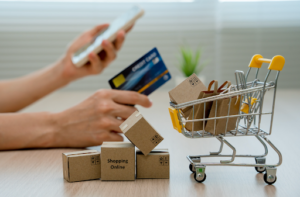The Importance of VPNs
A Virtual Private Network (VPN) is a tool that can help you achieve online privacy by preventing people like hackers, governments, and your Internet Service Provider (ISP) from collecting data from your online activities. Using a VPN will allow you to surf the Internet with an encrypted connection, so you stay safe. It also protects you from people trying to steal your data while you’re on a public Wi-Fi network, for example, in a coffee shop or a shopping center.
With the increased use of the Internet for daily needs, more and more people are starting to use VPNs. This is mainly because some activities require you to put in sensitive and personal data, and people want to protect themselves. Using a VPN nowadays is essential; we’ll tell you how you can benefit from getting access and how to choose the right one for you.
Benefits of a VPN
One of the leading benefits you get when you use a VPN is enhanced security. Through a VPN, all your data is encrypted, so it’s safe from prying eyes. Another great benefit is that it allows you to access websites and use applications anonymously. VPNs can also bypass blocked websites in your area. With a VPN, you can access information from your computer remotely. This tool will increase the performance and bandwidth of your Internet connection.
Choosing a VPN
Speed
Since VPNs encrypt your data as you browse the Internet, they can slow down your browsing speed. But, with a good company, this speed reduction will be minimal. They can also increase your download and upload speeds.
Number of Devices
Consider how many devices the VPN allows you to use its software on simultaneously. Most products on the market will enable you to connect five to seven devices, while a few products don’t limit the devices you can connect.
Protocols and Encryption
Whether you’re an entrepreneur or a website development agency in charge of a company’s data, it’s important to keep information safe. One way to do this is to use a VPN. Many people are reluctant to try new things; however, you should check it out to see if it works for you. Ultimately, it’s essential to know the strength of encryption when it comes to VPNs so you can be secure.
Coverage
Look to see how many servers the company has. More connection options reduce congestion, preventing connection drops. If there’s a server near your area, it can also improve connection speed.
Policy of Logs
VPNs hide your data from everyone, but they can see your Internet activity. If the one you use sells this information, then using the VPN is pointless. Free services tend to do this to make money, so always check the privacy policy of the VPN before you start using it. The best options on the market have a no-logs policy, so you can be sure that no one has your data.
Conclusion
The best way to avoid getting tracked while using the Internet is to use a VPN. This software will protect your online activities from prying eyes and cybercriminals to ISPs. When you’re looking for a VPN, it should provide you with good speeds, high connectivity, and guaranteed data security.







